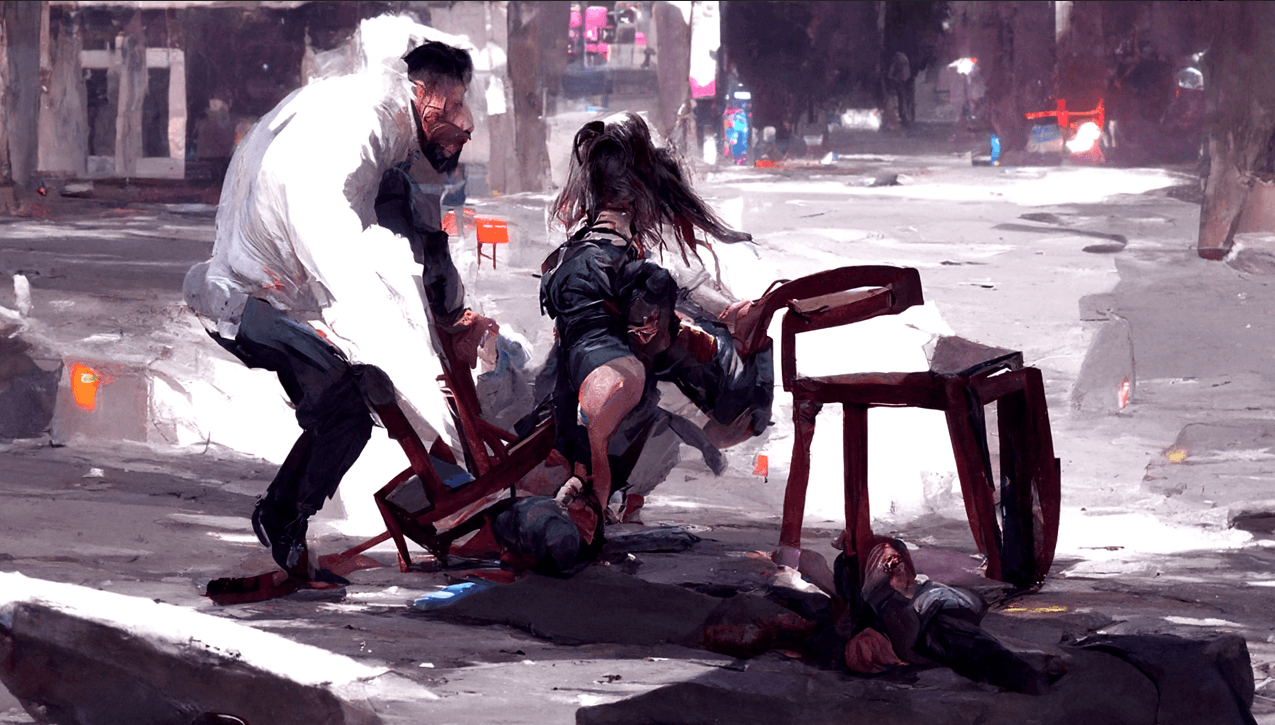
In the early morning of June 10th, a brawl broke out at a barbecue restaurant in Tangshan. Several men shamelessly assaulted several women in front of everyone, which sparked heated discussions among netizens.
I don't want to delve too much into this matter here, but I want to point out an interesting phenomenon that I observed.
After the incident escalated, there was a wave of anger on the internet. Angry netizens vented their emotions, while a small number of rational netizens began analyzing the reasons behind it. At this point, there were various voices on the internet. However, gradually, some voices were "disappeared," leaving only voices that portrayed the assailants as evil forces, indifferent bystanders, problems of the women themselves, the confrontation between feminism and masculinity, and so on.
Especially the latter, like a flood, overwhelmed those who had only made a few rational remarks.
At this point, I started to wonder why the root causes of this incident were not being discussed, and instead, only these opposing opinions were left? As I quickly browsed through some posts, I realized that some of the rational analyses had disappeared, and what later viewers saw were only emotionally charged discussions. At this point, he/she could choose to join in or analyze independently, but some of his/her comments would be actively or passively removed due to attacks from others.
What do I mean by "some comments"? I'm referring to those "disappeared" comments that I mentioned earlier—what are the underlying reasons behind the assailants being able to openly assault others and escape? The collusion between officials and businessmen that leads to a sense of impunity, the inertia of law enforcement that leads to the abuse of mutual violence—these all enable the perpetrators and warn those who dare not intervene.
However, these discussions have disappeared from the discussion and comment sections. If they ever appeared, they disappeared shortly after.
So what I want to say is that what we see is only a part of the whole picture, or even what the platform wants us to see. This is especially true for those who arrived "late" to the discussion.
This kind of thing is widespread. Just last week, Li Jiaqi's livestream was abruptly cut off, and as a widely popular anchor, the impact was naturally significant. That night, many posts appeared on Weibo pointing out the underlying reasons—there was a tank-shaped cake in the livestream, and "tank" was a sensitive word last week. But soon, these posts revealing the true reasons disappeared. When the audience who heard the news rushed to Weibo to find out the reasons, only a common voice remained: "The interruption was due to equipment issues."
Here comes the interesting part. Faced with such a voice, the discussion turned into: "Isn't the livestream team unreliable? They didn't even prepare backup equipment? Is it a platform issue? Taobao is such a big platform, can't they handle this kind of thing properly?..."
The sequence of events in the Tangshan assault incident was almost identical, just a bit more complex. Because Li Jiaqi, unfortunately, only needed a simple and decisive solution to what he had touched.
What they saw was only a part of the whole picture, or even less—they only saw the smudged part.
Therefore, when I see someone drawing one-sided conclusions elsewhere, I won't be surprised; when I try to understand something, I will reflect on whether what I see has been intentionally edited or not.